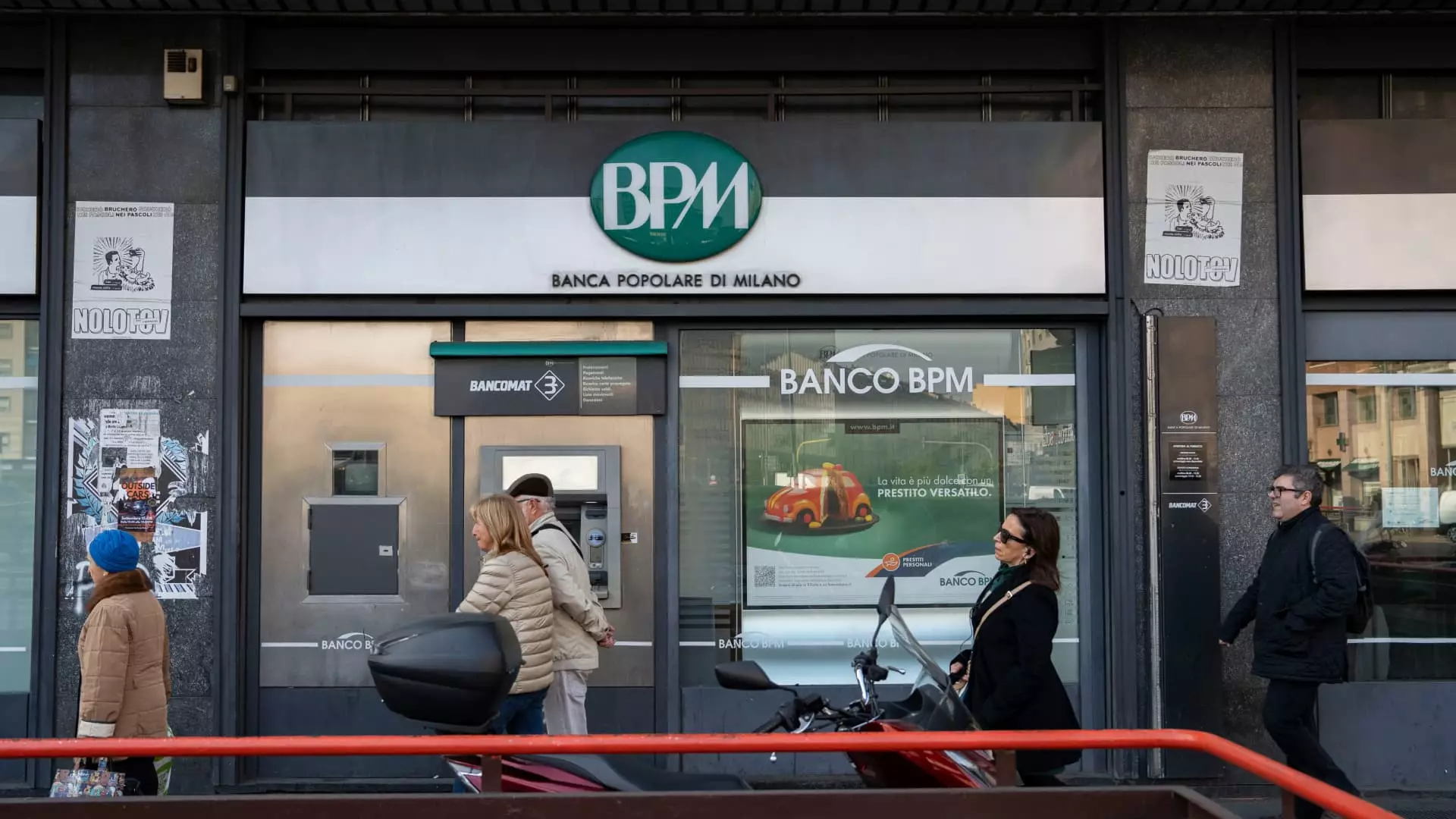The recent takeover offer by UniCredit for Banco BPM has stirred significant debate within the Italian banking sector, highlighting the complexities of mergers and acquisitions in a rapidly evolving financial landscape. This unexpected move, described as offering €10 billion ($10.52 billion), has raised eyebrows at Banco BPM, prompting its board to assert that the offer falls short of valuing their current profitability and future potential.
In a statement translated by CNBC, Banco BPM’s board of directors expressed its hesitance regarding UniCredit’s unsolicited bid. They emphasized that the circumstances surrounding the proposal were “unusual,” questioning not only the valuation but also the implications of rapid negotiations on their autonomy. The urgency implied by UniCredit’s timeline appears poised to undermine Banco BPM’s independent strategies and growth trajectories. The board reflects a sentiment that a hastily structured deal could dilute their existing business models rather than enhance them.
Moreover, the board scrutinized the strategic implications of such a merger. The bid does not merely involve the transfer of assets but encapsulates significant risks associated with altering the company’s geographic and operational focus. The central concern revolves around UniCredit’s potential expansion into markets previously designated for Banco BPM, possibly leading to a dilution of their established market presence in key regions.
UniCredit’s Broader Ambitions and Market Dynamics
UniCredit’s interests appear to extend beyond merely acquiring Banco BPM; the bank has also been considering a potential takeover of Germany’s Commerzbank. However, this plan has encountered resistance from the German government, highlighting the geopolitical intricacies entwined with such aspirations. UniCredit’s CEO, Andrea Orcel, has articulated a vision where larger banking entities are necessary to strengthen the European economy, underscoring a belief that consolidating resources can bolster competitiveness against global economic powers.
Through this lens, the attempted acquisition of Banco BPM can be interpreted as part of a broader strategy to establish a stronger foothold within Europe. However, the conflicting interests and national regulations pose challenges that Oracle himself acknowledged in response to Italian Economy Minister Giancarlo Giorgetti’s concerns about pursuing acquisitions on two fronts. This defensive posture indicates a growing skepticism regarding the feasibility of such expansive ambitions.
The marketplace has responded with mixed sentiments. As of the latest trading session, shares for both banks showed little movement, suggesting that investors may be taking a cautious approach to the unfolding situation. Banco BPM’s slight decline indicates apprehension among its investors about the long-term implications of UniCredit’s offer and the uncertain outcome of a potential merger.
In conjunction with this tension, there have been recent developments such as Banco BPM’s acquisition of a 5% stake in Monte dei Paschi, another significant player in Italian banking. This move reinforces Banco BPM’s position in a competitive environment and reflects its strategic intent to maintain control over its growth and operational decisions. The ongoing dedication to enhance its market position while fending off external acquisition threats illustrates the challenges both banks face amidst Italy’s daunting financial landscape.
As the drama unfolds in this high-stakes environment, it is critical to consider the broader implications for the Italian banking sector. The complexity of UniCredit’s offer, juxtaposed against the backdrop of external market pressures and domestic resilience strategies, presents a pivotal moment for all stakeholders involved. Should these negotiations progress, or should they falter, the outcome will invariably shape the contours of not only Italy’s banking industry but also the broader European economic landscape.
This situation encapsulates the dual-faced nature of modern banking—where opportunities for growth are often accompanied by substantial risks. The forthcoming responses from stakeholders will likely dictate the pace and direction of any potential consolidation efforts. As history shows, the undertones of such negotiations can resonate significantly within financial markets, influencing everything from stock values to customer confidence in the institutions involved. Thus, monitoring these developments will be crucial for understanding the future of banking in Italy and beyond.

